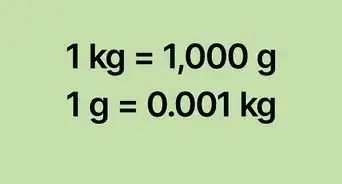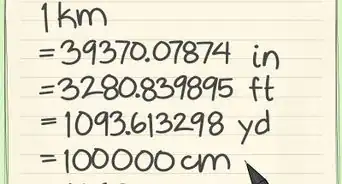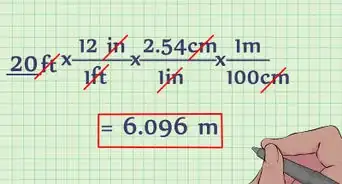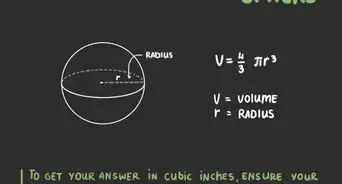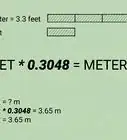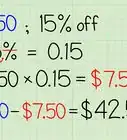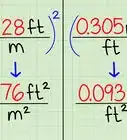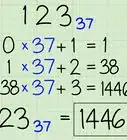This article was co-authored by wikiHow Staff. Our trained team of editors and researchers validate articles for accuracy and comprehensiveness. wikiHow's Content Management Team carefully monitors the work from our editorial staff to ensure that each article is backed by trusted research and meets our high quality standards.
This article has been viewed 38,051 times.
Learn more...
Micrometers and nanometers are two metric units of measurement. Both of these units are smaller than a millimeter and are often used in chemistry and biology. Many online calculators can complete a conversion between these two units for you; however, by simply remembering that there are 1,000 nanometers in a micrometer, you can easily make the calculations yourself.
Steps
Converting Micrometers to Nanometers
-
1Understand the relationship between micrometers and nanometers. Micrometers and nanometers are both units of measurement in the metric system. Nanometers are smaller than micrometers. There are 1,000 nanometers in 1 micrometer.
-
2Determine the number of micrometers you are converting. This information should be given to you. Make sure you are supposed to convert micrometers to nanometers. If you are converting nanometers to micrometers, or between units of measurements other than these two units, you cannot use this method, as your calculations will be different.
- The micrometers might be listed as a whole number, or as a decimal. For example, you might need to convert 7.8 micrometers to nanometers.
Advertisement -
3Multiply the number of micrometers by 1,000. Since you are converting a larger unit into a smaller unit, you will end up with more units than you started with.[1] Since there are 1,000 nanometers per 1 micrometer, to find the number of nanometers, multiply by 1,000.
- For example, .
So, .
- For example, .
Converting Nanometers to Micrometers
-
1Understand how nanometers are related to micrometers. Both are units of measurement in the metric system. 1 micrometer equals 1,000 nanometers.
-
2Ensure you are converting nanometers to micrometers. You should be given the number of nanometers you need to convert. If you are using measurements other than nanometers or micrometers, you would use different calculations and thus could not use this method.
- For example, you might need to convert 14,500 nanometers to micrometers.
-
3Divide the number of nanometers by 1,000. When converting a smaller unit into a larger unit, you end up with less units than you started with. Thus, you need to divide.[2] Since there is 1 micrometer per 1,000 nanometers, to find the number of micrometers, divide by 1,000.
- For example, .
So, .
- For example, .
Completing Practice Problems
-
1Try this problem. Convert 18 micrometers into nanometers.
- Since you are converting a larger unit (micrometers) into a smaller unit (nanometers), you should multiply.
- There are 1,000 nanometers in 1 micrometer.
- .
-
2Complete the following conversion. 300 nanometers = ___ micrometers.
- Since you are converting a smaller unit (nanometers) into a larger unit (micrometer), you should divide.
- There is 1 micrometer per 1,000 nanometers.
- .
-
3Analyze the following conversion: 3.8 __ = 3,800 __. Determine which value is stated in micrometers, and which value is stated in nanometers.
- There are 1,000 nanometers in 1 micrometer.
- Micrometers are larger than nanometers. This means a smaller number of micrometers will equal a larger number of nanometers.
Community Q&A
-
QuestionHow do I convert nanometers to micrometers?
 DonaganTop AnswererDivide nm by 1,000.
DonaganTop AnswererDivide nm by 1,000. -
QuestionWhat is the ratio of micrometers to nanometers?
 DonaganTop AnswererAs explained above, there are 1,000 nanometers in one micrometer. So in any given length, the ratio of micrometers to nanometers is 1:1000.
DonaganTop AnswererAs explained above, there are 1,000 nanometers in one micrometer. So in any given length, the ratio of micrometers to nanometers is 1:1000.
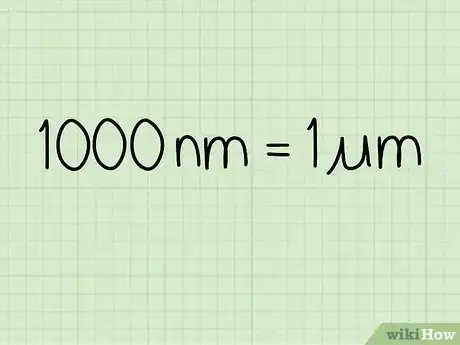
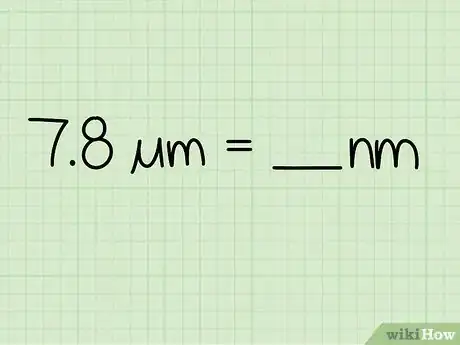
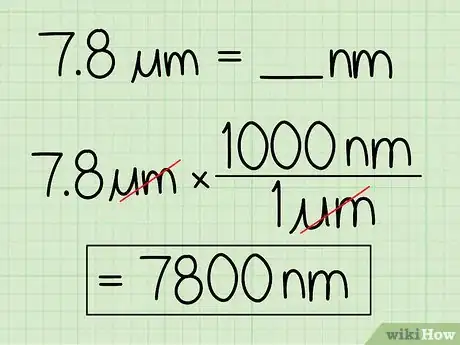


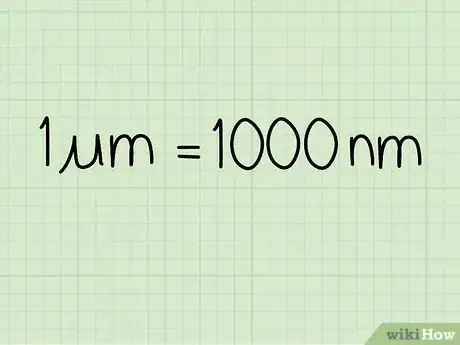
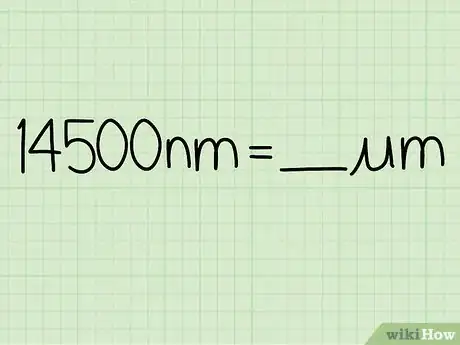
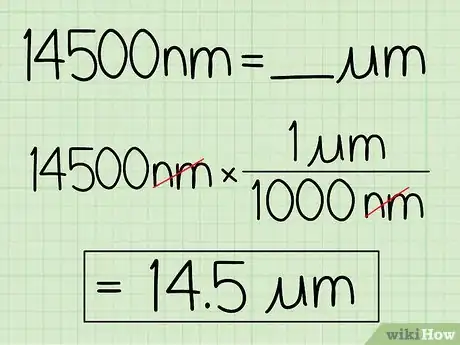


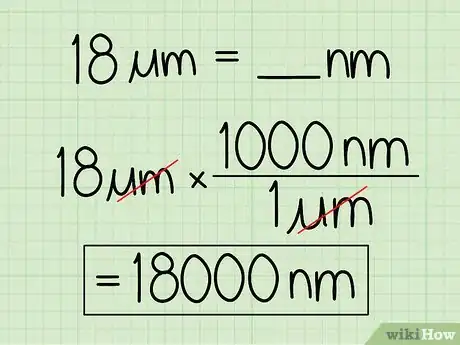


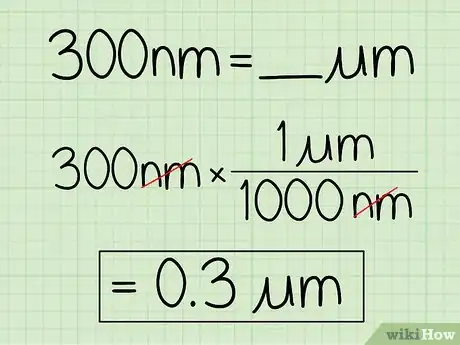


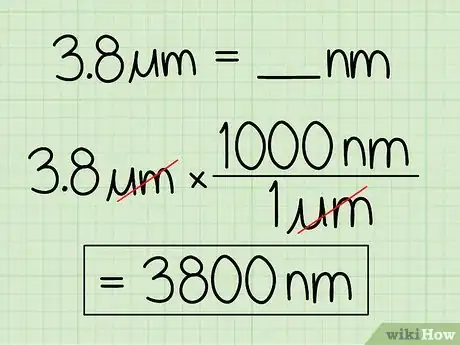


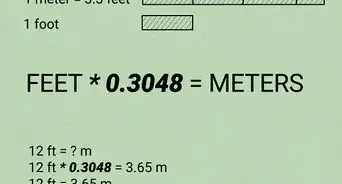

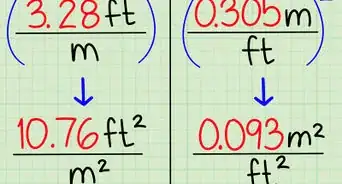
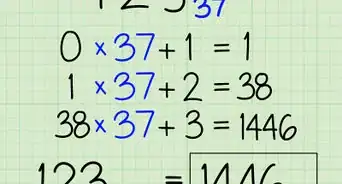
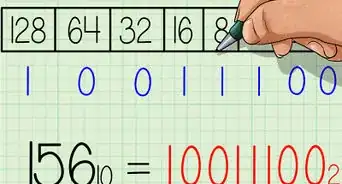
-to-Grams-(g)-Step-8-Version-5.webp)
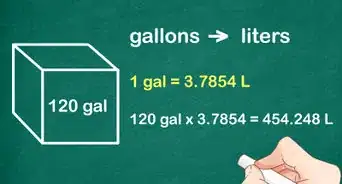
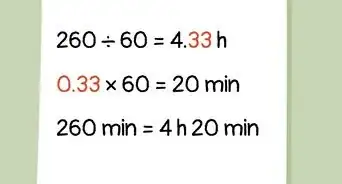
-to-Fahrenheit-(°F)-Step-6-Version-2.webp)
